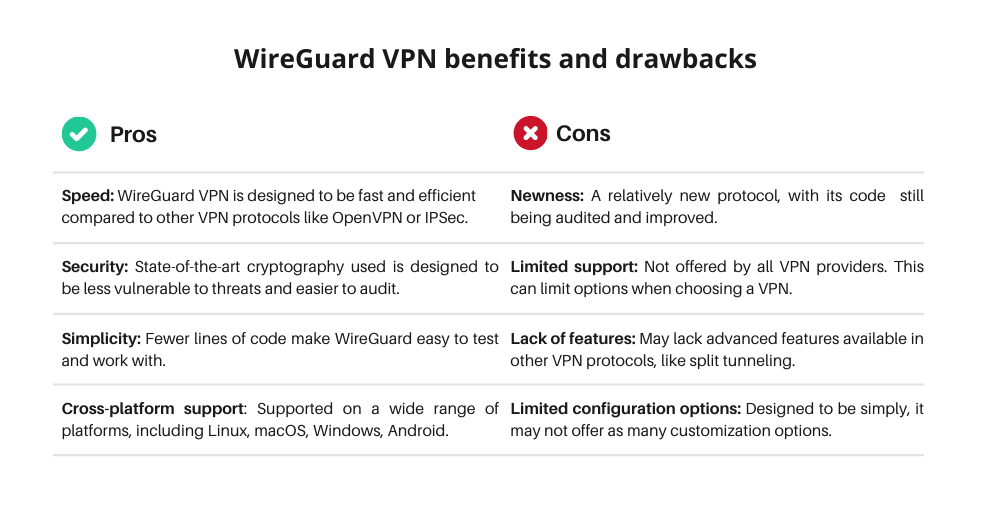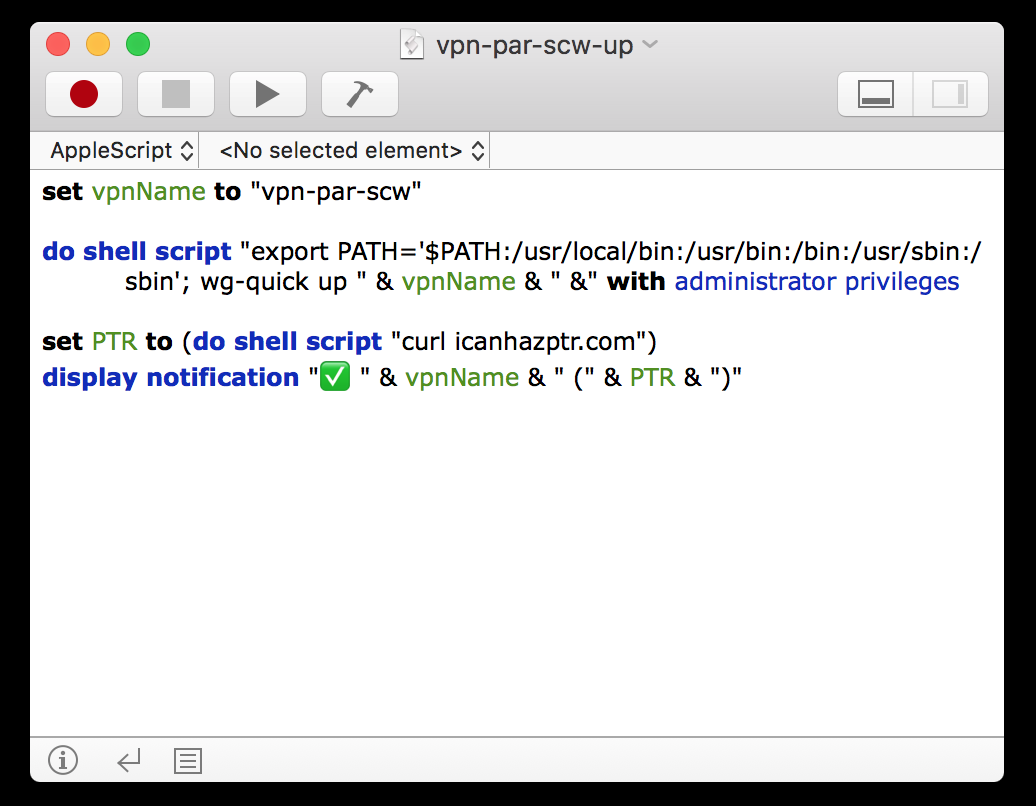Featured
Table of Contents
Wireguard Basics
It is currently under heavy development, but currently it might be considered the most protected, most convenient to use, and simplest VPN option in the market. Wire, Guard aims to be as simple to set up and deploy as SSH. A VPN connection is made merely by exchanging extremely easy public secrets precisely like exchanging SSH keys and all the rest is transparently managed by Wire, Guard.
There is no requirement to manage connections, be concerned about state, manage daemons, or fret about what's under the hood. Wire, Guard presents an extremely fundamental yet effective user interface. Wire, Guard has been created with ease-of-implementation and simplicity in mind. It is indicated to be easily carried out in extremely few lines of code, and easily auditable for security vulnerabilities. what is wireguard protocol and how does it work?.
, which goes into more information on the protocol, cryptography, and basics.

This user interface serves as a tunnel user interface. Wire, Guard associates tunnel IP addresses with public secrets and remote endpoints. When the interface sends a package to a peer, it does the following: This package is implied for 192. 168.30. 8. Which peer is that? Let me look ... Okay, it's for peer ABCDEFGH.
Openvpn Or Wireguard Vpn
If not, drop it. Behind the scenes there is much happening to provide correct personal privacy, credibility, and perfect forward secrecy, using advanced cryptography. At the heart of Wire, Guard is an idea called Cryptokey Routing, which works by associating public keys with a list of tunnel IP addresses that are enabled inside the tunnel (what is wireguard protocol and how does it work?).

Each peer has a public secret. Public keys are brief and easy, and are used by peers to verify each other. They can be passed around for usage in configuration files by any out-of-band method, comparable to how one may send their SSH public secret to a good friend for access to a shell server.
69:51820 Allowed, IPs = 0. 0.0. 0/0 In the server configuration, each peer (a customer) will have the ability to send packets to the network user interface with a source IP matching his matching list of permitted IPs. For instance, when a package is received by the server from peer g, N65Bk, IK ..., after being decrypted and verified, if its source IP is 10.
230, then it's permitted onto the interface; otherwise it's dropped. In the server configuration, when the network user interface wishes to send out a package to a peer (a client), it takes a look at that packet's destination IP and compares it to each peer's list of enabled IPs to see which peer to send it to - what is wireguard protocol and how does it work?.
Paper-comparison Of Vpn Protocols At Network Layer ...

10.10. 230, it will encrypt it using the public key of peer g, N65Bk, IK ..., and after that send it to that peer's newest Web endpoint. In the client configuration, its single peer (the server) will have the ability to send out packages to the network user interface with any source IP (given that 0.
0/0 is a wildcard). When a package is gotten from peer HIgo9x, Nz ..., if it decrypts and authenticates correctly, with any source IP, then it's permitted onto the interface; otherwise it's dropped. In the client setup, when the network user interface desires to send a packet to its single peer (the server), it will secure packages for the single peer with any location IP address (because 0.
0/0 is a wildcard). If the network user interface is asked to send a package with any destination IP, it will encrypt it utilizing the public secret of the single peer HIgo9x, Nz ..., and then send it to the single peer's most recent Internet endpoint. To put it simply, when sending packages, the list of permitted IPs behaves as a sort of routing table, and when receiving packages, the list of enabled IPs behaves as a sort of access control list.
Wire, Guard is totally capable of encapsulating one inside the other if necessary. Since all packages sent on the Wire, Guard user interface are secured and authenticated, and due to the fact that there is such a tight coupling between the identity of a peer and the enabled IP address of a peer, system administrators do not need complicated firewall program extensions, such as in the case of IPsec, however rather they can merely match on "is it from this IP?
7 Common Vpn Protocols Explained

The customer configuration contains an initial endpoint of its single peer (the server), so that it knows where to send out encrypted information before it has gotten encrypted information. The server configuration does not have any preliminary endpoints of its peers (the customers). This is since the server finds the endpoint of its peers by analyzing from where properly validated data originates.
If you're having trouble establishing Wire, Guard or using it, the very best location to get aid is the #wireguard IRC channel on Libera. Chat. We likewise go over development jobs there and plan the future of the project. Get associated with the Wire, Guard development conversation by signing up with the subscriber list.

Do not send out non-security-related concerns to this e-mail alias. Do not send security-related concerns to various e-mail addresses. The kernel parts are released under the GPLv2, as is the Linux kernel itself. Other tasks are licensed under MIT, BSD, Apache 2. 0, or GPL, depending on context.
Wire, Guard is much faster than Open, VPN. It consumes 15% less information, handles network modifications much better, and seems protected. However, Open, VPN has been tried and checked, is more privacy-friendly, and is supported by a larger number of VPNs.
Why Wireguard? - Guides
We may get payment from the items and services discussed in this story, but the viewpoints are the author's own. We have not consisted of all available products or deals. (VPNs) have actually taken off, gaining popularity with those looking for extra security, personal privacy, and flexibility.
In this short article Wire, Guard is a brand-new, open-source VPN protocol developed with modern cryptography, which is the practice of coding sensitive information so only the desired receivers can interpret its meaning. Developer Jason A.
Working with Wire, Guard couldn't be easier. Wire, Guard keeps it easy by running with fewer than 4,000 lines of code compared to older VPN protocols that generally utilize thousands more.
Latest Posts
Best Business Vpn In 2023 [Ranked & Reviewed]
Best Business Vpn Options In 2023 [Keeping Smb Data ...
Best Remote Access Vpn In Usa To Work From Home